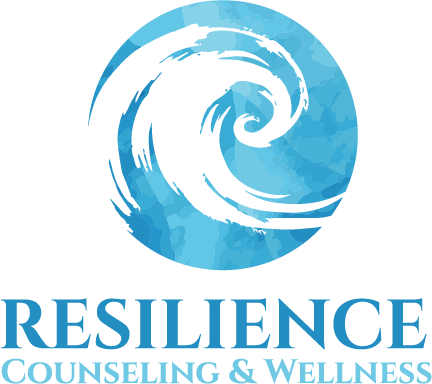Going Beyond Traditional Therapy in Texas to Help You Heal
At our practice, we believe in treating the whole person—not just the symptoms of trauma, anxiety, or stress. We set ourselves apart from other therapy practices in Houston with our integrative approach, combining traditional therapy with innovative wellness methods. Our goal is to balance the nervous system and promote deep, lasting healing.
More Than Just Talk Therapy
We offer more than talk therapy. Alongside transformative techniques like Eye Movement Desensitization and Reprocessing (EMDR) and Accelerated Resolution Therapy (ART), we provide various wellness options, including SomatIQ breathwork, vibroacoustic therapy, and neurofeedback. Pairing these methods with therapy creates a unique experience that facilitates the deepest shifts in your emotional, physical, and spiritual well-being. Additionally, we utilize Somatic Experiencing, the Safe and Sound Protocol, and Brainspotting to address how trauma impacts both the mind and body, helping you heal from the inside out.
A Therapy Experience Tailored to You
If therapy has felt lacking for you before, our holistic approach will unlock your healing journey. Clients come to us not only for symptom relief but for an experience that treats the entire person. Whether through the integrative effects of EMDR, the quick relief of ART, somatic interventions, or our unique wellness offerings like breathwork and neurofeedback, our approach creates balance and deep, lasting transformation in your life.
Healing Beyond the Traditional

In Houston’s fast-paced, high-stress environment, many people struggle with the effects of trauma and chronic stress. At Resilience Counseling & Wellness, we recognize that true healing requires more than traditional therapy. By blending EMDR, ART, and wellness services such as SomatIQ breathwork and vibroacoustic therapy, we offer a space where you can process difficult emotions and memories and experience deep regulation of your body and nervous system.
Your Path to Holistic Recovery
If you’re looking for more than just traditional therapy, we’re here to guide you through a holistic path to recovery. Our unique combination of therapy and wellness services creates an unmatched experience that leads to profound shifts, healing your whole being—emotionally, physically, and spiritually. Reach out today to begin your journey toward complete healing.
What People Are Saying
Absolutely life-changing! My therapist is amazing and I’m so happy to be working with her! I’ve told all my friends about her!
I have been seeing Kristen Gallien for a few months and she is wonderful! She makes me feel heard and understood and has been a wonderful support! I’m so grateful I found her!
Ashlie is amazing 💙 I find myself referencing things she’s said to me, and she’s opened my mind to a lot of belief patterns I had that I wasn’t aware of. She’s also very open-minded to recommending or referring you to any other therapy methods she thinks might benefit you. I think my favorite thing about her though is she’s honest and direct, yet very in tune to take things at my pace, and never pressures me to do any type of therapy or have any type of conversation I’m not ready for. 💙
Therapy is going so well! We are doing hard work and it’s very different than any other therapy I’ve done, but I’ve had a great experience and feel very seen and confident in my treatment. I appreciate how validating this experience has been. I always leave feeling soothed and more confident/motivated.
I’ve been with Ashlie for at least 3 years, (If not more?) I’ve made great strides in my therapy! I’m a childhood trauma survivor. I spent most of my life simply surviving. After another traumatic event, I finally sought help.
Ashlie helped me understand my trauma. She explained the reasons for my inner turmoil. She was patient and supportive. I felt accepted and safe. I have said many times that Ashlie saved my life and I’m grateful for the tools she provided me. I was very lost for very long and Ashlie led me through the darkness.
I have more work ahead of me and I know I can count on Ashlie to see me through the rest of my journey. “Thank you” doesn’t encapsulate the gratitude I feel for you. You helped me find true happiness!
Kristen is amazing. Very present and I love what she said in our first session—that her goal is to learn what it’s like to be me and to walk alongside me. I feel a difference since working with her and am so grateful to have found your practice and Kristen!
Thank god Kristen recommended EMDR to me. Before it, I genuinely didn’t think I was going to ever feel better, but after only about 2ish months I’m functional again. Also, I like that she said “We’re not trying to make you see your trauma in a positive light, we’re just trying to turn it into a memory that doesn’t hurt you anymore” because I was worried I’d have to act happy by the end of EMDR therapy. But no, the memory still sucks but it really doesn’t hurt anymore!
Things are going really well with our therapist. My daughter really likes going to see her and it’s great to see her high comfort level with an adult. She is wonderful.
I have been seeing Ashlie for almost a year and a half. She almost feels like a friend that I can talk to but one that offers good advice. I like having her to bounce my feelings off of and having her guidance to navigate personal and business situations. I’m feeling pretty good about things in my life right now, but I look forward to our 2x per month sessions and being able to talk things out with her.

